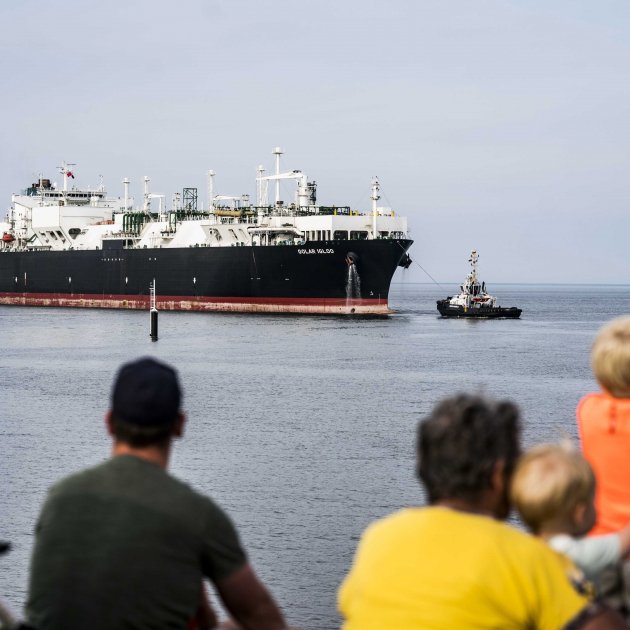Gazprom has cut natural gas supply to Europe until further notice. Last Saturday, the Russian company announced the indefinite closure of the Nord Stream 1 gas pipeline, which should have resumed its activity over the weekend. However, the company has stated that the shutdown is due to a breakdown, not an act of revenge. Meanwhile, in July and August, Spain was the country in the world that bought the most liquefied natural gas (LNG) from Russia. Spanish importers transferred more than 747 million euros to energy companies in payment for LNG, according to data published this Tuesday by the Centre for Research on Energy and Clean Air (CREA), also reported by El Pais. Next after Spain are France (600 million euros) and China (527 million euros). The port of Bilbao, in this context, was the third port in the world to receive most Russian gas during the months of July and August. Right after Montoir-de-Bretagne (France) and Zeebrugge (Belgium).
The data collected by the Spanish newspaper indicates that in the almost seven months of war, Spain is the third-ranked country in terms of its purchase of Russian LNG, only behind France and Belgium. The figures place Japan and China even further behind, and it should be taken into account that the two Asian countries are two of the most important importers of this fuel. If we look at the gas that arrived via pipeline, Bulgaria led the purchases from Russia (paying 1.6 billion euros), then Turkey (1.4 billion euros) and Germany (1.2 billion euros). All these purchases made by Europe and the West are essential to extending the Russian invasion of Ukraine and also to avoid crippling Russia's economy, enabling the country to stand up to take stand up to the sanctions. El País points out that 40% of the Russian annual budget depends directly on these inputs.
The Kremlin, richer
Despite the problems, gas cuts and sanctions, the Russian company Gazprom has come out better off. The company is about to provide the Kremlin with a record injection, with an extraordinary payment of 9,962.83 million euros to Russian national coffers. These profits cannot be compared with those from any other year. The company recorded net profits of 2.5 trillion rubles, that is, 41.5 billion euros, during the first six months of this year. Oil and gas prices have soared during this period due to concerns about supplies following Russia's invasion of Ukraine. Part of these profits will therefore go directly to the Kremlin, which owns 49.3% of Gazprom.
Difficult to understand at first glance, however, is that the sanctions against Russia have not affected Gazprom. Chief executive Famil Sadygov said: "Despite pressure from sanctions and an unfavourable external environment, the group has reported record revenue and net profit in the first half of 2022. In addition, it has also reduced debt to a minimum". And it's all the more striking because, despite posting profits, production levels are the lowest since 2008. Gazprom has cut its gas production in recent months to the lowest level since 2008. In July, the flow stopped for 10 days for scheduled maintenance, but only at 20% capacity amid a dispute over sanctions imposed on Russia. Now, the supply has been shut down indefinitely.
Russia burns off tons of gas
Meanwhile, Russia has been burning off an estimated 10 million euros worth of natural gas a day near the border with Finland, analysts say. In fact, some estimate that even this figure could be higher and could soar even further in the weeks ahead. Even though Europe is under threat of an energy crisis during the winter, due to restrictions on exports to Germany and other countries. Thus, Gazprom would be burning about 4.34 million cubic metres of gas per day at a new liquefied natural gas (LNG) facility, according to analysis of heat levels and satellite data by Rystad Energy, which CNN picked up last week.
Main image: a liquefied natural gas ship arrives in Holland / Efe
